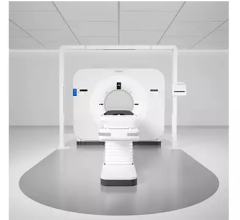April 27, 2017 — Jason P. Sheehan, M.D., Ph.D., FAANS, winner of the Leksell Radiosurgery Award, presented his research on stereotactic radiosurgery (SRS) in patients with nonfunctioning pituitary macroadenomas during the 2017 American Association of Neurological Surgeons (AANS) Annual Scientific Meeting, April 22-26 in Los Angeles.
Stereotactic radiosurgery (SRS) is frequently used to treat residual or recurrent nonfunctioning pituitary macroadenomas. There is no consensus as to whether SRS should be used early after surgery or if radiosurgery should be withheld until there is evidence of imaging-defined tumor progression. Given the high incidence of adenoma progression after subtotal resection, the study evaluated the effect of timing of radiosurgery on outcome.
A multi-center study of patients with nonfunctioning pituitary macroadenomas who underwent partial resection followed by SRS from 1987 to 2015 was conducted at nine institutions of the International Gamma Knife Research Foundation. Patients were matched by adenoma types and radiosurgical parameters and stratified based on the interval between resection and radiosurgery. Operative results, imaging and clinical outcomes were compared across groups following early (SRS delivered <= 6 months from the time of resection) or late (SRS delivered > 6 months from the time of resection) radiosurgery.
After matching, 222 patients met the study criteria and were grouped based on early or late SRS following transsphenoidal surgery. There was a greater risk of tumor progression in the late radiosurgical group over a median imaging follow-up period of 68.5 months. No significant difference in occurrence of post-GKRS endocrinopathy was observed. Thirty percent of patients without endocrinopathy in the early cohort developed new endocrinopathies during the follow-up period versus 27 percent in the late cohort. Fourteen percent of the early group and 25 percent of the late group experienced resolution of endocrine dysfunction since original presentation.
Results of the study indicate that early SRS decreases the risk of radiographic progression of sub-totally resected nonfunctioning pituitary macroadenomas compared to expectant management followed by late radiosurgery. Delaying radiosurgery may place patients at increased risk for long-term adenoma progression. Early radiosurgery may be preferred in nonfunctioning pituitary adenoma patients with residual tumor after surgery and a life expectancy of five or more years. The timing of radiosurgery does not appear to significantly affect the rate of delayed endocrinopathy.
The author block included: Jonathan Pomeraniec; Hideyuki Kano; Zhiyuan Xu; Brandon Nguyen; Zaid Siddiqui; Danilo Silva; Mayur Sharma; Christian Iorio-Morin; Amparo Wolf; John Jane Jr.; Inga Grills; David Mathieu; Douglas Kondziolka; Cheng-Chia Lee; Gene Barnett; L. Dade Lunsford; Chih-Chun Wu; Chris Cifarelli; Tomas Chytka; Hesham Radwan; Jonathan Cohen; and Robert Dallapiazza
For more information: www.aans.org


 November 04, 2025
November 04, 2025 









